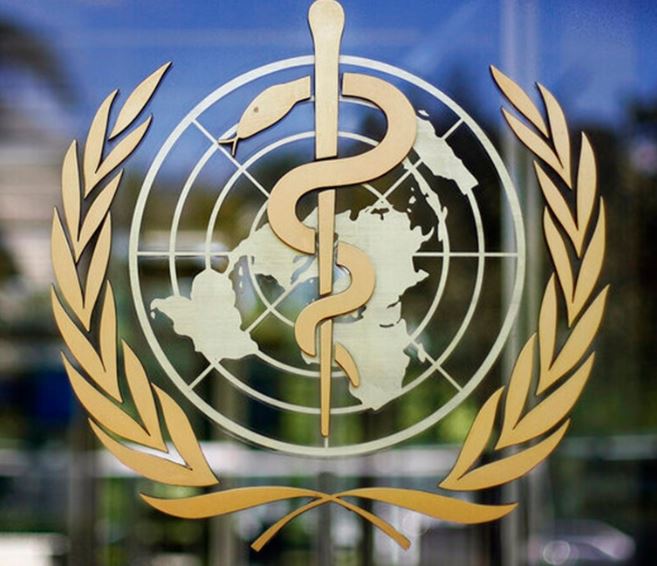(Natural News)—Since 2020, the World Health Organization (WHO) has become a flagship for the worst kinds of bureaucratic tyranny. The WHO has done nothing but promulgate propaganda and trample on the sovereignty of nations, while covering up the vaccine holocaust that was mandated on the world. Not only has the WHO wreaked havoc on global health, but they have also exacerbated discrimination and segregation with their vaccine passport proposals, while ramping up bio-terror and medical fraud with PCR testing mandates, and mass quarantines that lack evidence and due process.
The WHO’s actions during the COVID-19 scandal, driven by corporate interests, have led to an unprecedented assault on individual liberties and societal well-being. Individualized treatment was ditched for a one-size-fits all set of public health mandates that exacerbated human suffering. However, merely ending a relationship with WHO does not do anyone justice. A sovereign United States must go to war with the World Health Organization and fight back against an insidious global health industry and biosecurity state that thrives on power, profit and human exploitation.
Dismantling the WHO is just the beginning; we must confront the biosecurity state in domestic healthcare systems
While disentangling from the WHO may feel like a victory, it is a hollow one unless it is part of a broader overhaul of the entire global public health infrastructure that thrives on hysteria, fraud and unlawful mandates. The WHO is but a cog in a machine that values corporate profits and political control over the health and dignity of ordinary people. It is a tool of biosecurity agendas and profit-driven policies. Simply leaving the WHO will not end this toxic system. This toxic system of human exploitation is embedded into Western healthcare. We need to break away from predatory vaccine experimentation and infectious disease fearmongering, and find an exit strategy from the entire corrupt public health industry.
In 2020, the WHO didn’t just fail the world — it became an active participant facilitating medical fraud, medical error and wrongful death. At the behest of wealthy sponsors and political elites, the organization oversaw policies that disproportionately affected the most vulnerable populations. The behemoth pushed for lockdowns that decimated economies, exacerbated poverty and pushed millions more into food insecurity. The WHO’s reckless actions forced children out of school, denied medical care to those with non-COVID-related ailments and deepened the debt crises of developing nations. Perhaps most egregiously, the organization facilitated an unconscionable transfer of wealth from the most disadvantaged to the pharmaceutical and corporate elites.
This wasn’t an unfortunate mistake — it was a calculated, intentional response to a manufactured crisis. Instead of focusing on protecting the most vulnerable, the WHO facilitated a global power grab, censoring dissent and offering unprecedented privileges to its corporate sponsors. Fostering a climate of fear and control, the WHO set the stage for future exploitation. The result? A generation of young people with stolen opportunities, impoverished nations saddled with insurmountable debt, billions of dollars in profit funneled to pharmaceutical giants and a holocaust ignored.
The WHO’s failure isn’t just a case of poor leadership or bad decisions — it’s a reflection of deep-rooted structural corruption. The organization’s original mission, established in 1946, was to ensure health equity and protect the world’s most vulnerable. But over time, it has become a grotesque shadow of that ideal. Its executives, insulated by lavish salaries and funded by the very corporations it claims to regulate, are increasingly detached from the people they were supposed to serve. This corruption is not incidental — it is intrinsic to the WHO’s very existence.
Davos elite will continue to threaten human freedom and health, while pretending to keep people safe
It is a tragic farce to watch WHO leaders attend elite summits in Davos while millions around the world suffer from the totalitarian policies they impose. These elites are not working for the global population — they are working for the interests of multinational corporations, international finance and the political elites who profit from a system of global control.
Take, for example, the WHO’s recent push to amend the International Health Regulations (IHR) under the guise of pandemic preparedness. These amendments, championed by corporate interests and political elites, would give the WHO even more sweeping powers to dictate national health policies during future crises. The WHO, once a facilitator of global health equity, has become an instrument for a biosecurity agenda that prioritizes global control and private profits over the health and freedom of individuals.
The WHO’s hand is forced by the pharmaceutical industry and the wealthy figures who look to capitalize from vaccine investments. The more money these companies pump into the organization, the more influence they wield over its policies. And the results are devastating. The WHO’s advisory guidelines on things like abortion, gender identity, vaccine skepticism and climate change reflect this unholy alliance. Its push for universal abortion access up until birth, no questions asked, and its endorsement of extreme gender ideology, show a stunning disregard for biological truth and basic human dignity.
The WHO is merely one part of a much larger, systemic problem. The global health industry, in which the WHO plays a pivotal role, is increasingly dominated by a commodity-based approach that uses healthcare as a weapon. Market exclusivity and other profit motives restrict access to healthcare. A corrupt insurance industry eliminates alternative, holistic and individualized approaches to healthcare and stops the progression of healing modalities from being accepted. From Big Pharma to the private donors funding international health initiatives, this industry is driven by the bottom line — whether that means selling dangerous vaccines, controlling supply chains or pushing austerity measures on poor nations. To reform healthcare and restore trust in medical professionals, WHO must be dismantled and its sordid influences must be removed from every healthcare systems.
Sources include:



